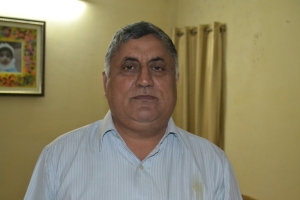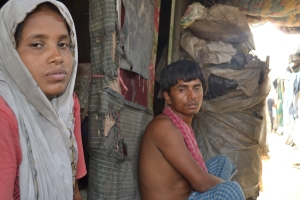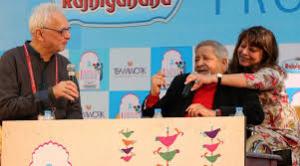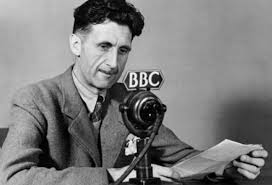A deputy-secretary level officer in the office of chief controller of accounts (ministry of external affairs) claimed the payment for a domestic journey when he was in Geneva. Two bureaucrats in the department simultaneously used one official vehicle for different locations and asked for reimbursement, which was duly granted. Circumventing all rules, the department recruited two peons, who were shortlisted out of 42 candidates, within three days of having dispatched the call letters. This litany of irregularities did not cease. The department cleared the vouchers of a deputy secretary-level employee who overshot his telephone allowance ceiling on an average by Rs 5,500 per month. In the office, over time allowance (OTA) was paid to even those who were absent. Punctuality was given short shrift as almost all offices in CCA had been continuously opened after 10 am over a period of time, incurring a loss of up to Rs 50 lakh annually – which is a pygmy compared to 2Gesque giants. (The rule book says that twice in a month one hour grace period is allowed. However on the third occasion on being late, half-day CL would be deducted, which did not happen).
Losing Lostboy
Gallery
‘The Jharnalist Returns’ – those were the words Sanjaya Senanayake inscribed into a screensaver he designed for my then candybar Nokia phone. He engaged in the past time as we braved through what seemed to be an endless linear editing session of a video that had something to do with paalak ke pakode. The screensaver was one of several ways Sanjaya made me come across as cooler than I actually was. What better name than could I pick for this blog?
That day in the editing suite was towards the end of 2003. Sanjaya and I had met earlier that year. Running late, I had rushed into a packed classroom on my first day at the Asian College of Journalism in Chennai. I hastily made my way towards the only vacant seat and as soon as I sat down a towering figure turned towards me with an outstretched hand to…
View original post 1,409 more words
When the guardian (UNHCR) betrays refugees
StandardThe UN refugee agency in India has a raft of responsibilities which include refugee
status determination (RSD), issuance of refugee cards, monetary assistance, skill
development training, health and education. It covers nationals from non-neighbouring
countries (Myanmar being exception).
On refugees, the UNHCR and the Indian government have a division of labour, says the UNHCR chief of mission in India, Dominik Bartsch.
Refugees lurch between frying pan and fire
StandardFormerly a journalist, an Afghan refugee in Delhi puts an Afghani roti on a chop board,
gingerly places slices of marinated chicken, onion and tomato, and completes an Afghani wrap with French fries and garlic sauce with unpractised hands.
Mateen, who fled his country when his journalistic freedom became hostage to the
Taliban, owns a roadside fast-food stall, called Kabul Burger, written in Dari script.
Refugees’ struggle to stay afloat in Delhi
StandardA three-part series on refugees, which will look at the routes they use to enter India, their livelihood issues in India, and the role of the UNHCR and the Indian government in their rehabilitation and well-being. The series was published by the Asian Age in 2014.
Writers and the way with words (published by The Asian Age)
StandardJaipur, known for its cultural heritage, becomes more colourful in January with the literature festival, which has been “regarded as cultural catalyst” for the world’s most diverse audience from a rickshaw-puller to a Pulitzer Prize winner and galaxy of renowned panellists. Since its first edition in 2006, the festival has metamorphosed into a confluence of writers, publishers and readers and has had an astronomical expanse since then.
It was mostly youth who swarmed the Zee-Jaipur Literature Festival 2015, tilting the balance in favour of being a festival rather than a literary affair. Students from various schools queued for sessions. “I think the students will get exposure to see and listen to great writers, which will improve their horizons and inspire them to read non-curricular books,” said a teacher who chaperoned 20 students.
No sooner had literary enthusiasts packed their bags to say annual adieu to the Pink City, the JLF roped in Margaret Atwood, Kazuo Ishiguro, Ian McEwan, Noam Chomsky and A.L. Kennedy for next year, only to further pique the cognoscenti’s interest.
Threat to Journalism (published in the Asian Age, May 2014)
StandardIn the movie Live from Bahghdad, CNN’s producer Robert Wiener (played by Michael
Keaton), covering Iraq bombings by the US in 1991, likens reporting from enemy lines to “moonwalk for a journalist”. In pursuit of the journalistic moonwalk to tell the truth, free voices are silenced, dissent smothered, opinions manipulated and messengers
brazenly implicated by dictators and democratic demagogues alike. Has the onslaught
against the Fourth Estate become more frightening? Experts are unanimous in affirming an increasing hostility against media. Continue reading
In Search of Jaarj Arwil Redux (published in the Asian Age in September 2013)
StandardA train groans to a halt at Motihari railway station. At the station, a wide-eyed bookseller showcases books – ranging from Munshi Premchand to Chetan Bhagat, but no George Orwell – and periodicals. An unexpected question is thrown at him: is he aware of the birthplace of Orwell? The interviewer has to be ambitious to expect a “yes” from the hawker. Suddenly, the camera zooms in on a blithe college student who is confronted with the same query. The answer is a nonchalant “no”.
This satirical opening scene, which sets the tone for the documentary Orwell..!… but
why?, prods viewers into asking a forgotten question: about Motihari’s Orwell
connection.
This crude reality of unknowing the otherwise known was perhaps first reported by a
Sunday Times British journalist, Ian Jack, who visited Motihari in 1983 to write a report, titled In search of a Jaarj Arwil, on Orwell’s birthplace. To avoid any confusion over Orwell’s name with the residents of Motihari, Ian Jack settled on using “Jaarj Arwil”.
He bemusedly wrote, “Its (Motihari’s) citizens have never heard of Big Brother. They
attribute no literary significance to new year (1984).” His over-the-top reporting pointed
out the ignorance of Motiharians about one of their more famous sons.
The showcasing of extreme generalisation is something that is mirthfully lapped up by
journalism and film-making alike, in this case the unawareness of people about Orwell.
However the director of the film, Bishawjeet Mookherjee, treads this generalisation path carefully and concedes that most people have a “vague idea about Orwell”.
Purposively named, Orwell..!… but why? revolves around the life of Eric Arthur Blair — who wrote ageless, prescient novels like Animal Farm, Nineteen-Eighty-Four and
Burmese Days under his pen name George Orwell. It focuses on his birth at opium
quarters, then the Blairs’ bungalows, in Motihari town of East Champaran district, Bihar, where his father Richard W. Blair was in charge of the warehouse in British India.
The 23-minute film, in showing the run-down residence, wants to stress the importance of preserving the site and kindling students’ interest.
Orwell..!… but why? laments the crumbling state of the erstwhile opium premises. Since the birth of Orwell on June 25, 1903, the Blair residence has served as lodgings for
officials and hostels for students. And an earthquake in 1934 further battered the house.
Now it consists of two rooms, a guest-room and one courtyard with a well. Though the
floor is intact, the ceiling needs repair, says the chairman of the George Orwell
commemorative committee, Debapriya Mookherjee. Funds from the arts and culture
ministry of Bihar have, to some extent, helped preserve the area, including a brick wall
to protect it from encroachment. Nonetheless getting funds and mobilising people for
preservation was not easy. The latest confrontation was in early 2013 when Orwell found himself pitted against Gandhi. Some local politicians wanted to build a Satyagraha Park for Gandhi which, if implemented, would have encroached on Orwell’s site. The project was duly scrapped by the state government.
Against this background, the producer of the documentary, Rotary Motihari Lake Town, gives reasons for the funding. “We are funding it to ward off misconceptions of people who have not read Orwell. The film will enlighten people by stating that a world-famous British writer, born in Motihari, was staunchly opposed to colonialism, and his literary contribution is unparalleled,” says Debapriya.
When asked what led to the making of the documentary, the director, Bishwajeet
Mookherjee, contends, “Unfortunately, a major part of the population is unaware of the
fact that a great personality of the 20th century was born in their native place. People
who have some idea that a British author was born here simply tend to ask, ‘Why should we promote an Angrez in a place like Motihari which is known for its contribution in the Indian freedom struggle?’”
Another impetus for the documentary was Orwell’s anti-imperialist words in his novels
Burmese Days and Nineteen Eighty-Four. The task of straitjacketing Orwell in ideological polemics – anarchism, socialism or anti-totalitarianism – rests with a literary critic.
However, the common theme in his 16-year of literary career was his abomination of
colonial repression and the imperialism he first witnessed as a policeman in Burma,
then a British colony. “If we read his columns for Tribune and other publications, it becomes clear that his was an anti-colonial mind, which lends credence to the fact that we should revive his legacy in Motihari,” argues Bishwajeet.
The documentary also tries to explore various facets of Orwell as soldier, journalist,
writer, poet and literary critic. Keeping in view his literary significance today, the film
interviews literary connoisseurs, friends, government secretaries and officials. The most important among them is the interview Jay Dubashi who was Orwell’s friend in London and met him two days before his death on January 21, 1950. Bytes from family can throw light on “the intimate Eric Blair” and his peripatetic life, overwhelmed by worse than “lower-upper-middle-class” existence.
The benefits which will accrue to the town by preserving Orwell’s cradle site are
enormous, predicts Bishwajeet. The town, which witnessed Gandhi’s first satyagraha
over opium cultivation in 1917, has a Gandhi memorial and museum, and a Buddhist
stupa – reported to be the tallest in the world – was excavated in 1997 in Kesariya,
around 50 km from Motihari. The trinity of Gandhi, Buddha and Orwell can help us attract international and national tourists and register a strong international presence on the tourist map, provided our efforts to preserve the Blairs’ residence fructify through this film, says the director.
On being asked about the relevance of Orwell in the 21st century, Bishwajeet observes,
“There are some legends whose appeal transcends borders, and Orwell was one of
them. His dystopian novel Nineteen Eighty-Four predicted in 1949 that super-state
structures are imminent. They will snoop on individuals, and he foresaw that the state
will intrude into our privacy rights; eg, NSA surveillance. Moreover, phrases and words he coined – ‘Big Brother’, ‘newspeak’ and ‘doublespeak’ – have become an integral part of today’s parlance, particularly in reportage.”
The documentary began shooting in September 2013 and covered Pune, Kesariya and
Motihari. It was launched on January 21, the 64th death anniversary of the ahead-of-the-curve writer.
Journalists face rising hostility across the world
StandardReporting from enemy lines, in words of CNN’s producer Robert Wiener in the film, Live from Baghdad, is like a “moonwalk for a journalist.”
However, in pursuit of the journalistic moonwalk, free voices are silenced, opinions manipulated and messengers brazenly implicated by dictators and democratic demagogues alike. To make matters worse, there is an increase in hostility against the media across the world.
for more plz visit:
http://www.asianage.com/india/journalists-face-rising-hostility-across-world-672
Dalit Students and Journalists – from Classroom to Newsroom (Kafila)
StandardThe aim of the press is to shape public discourse on political, economic and social issues.
Habermasian public sphere or imagined communities (Benedict Anderson) do not factor in
the caste question.
For more you can go to



